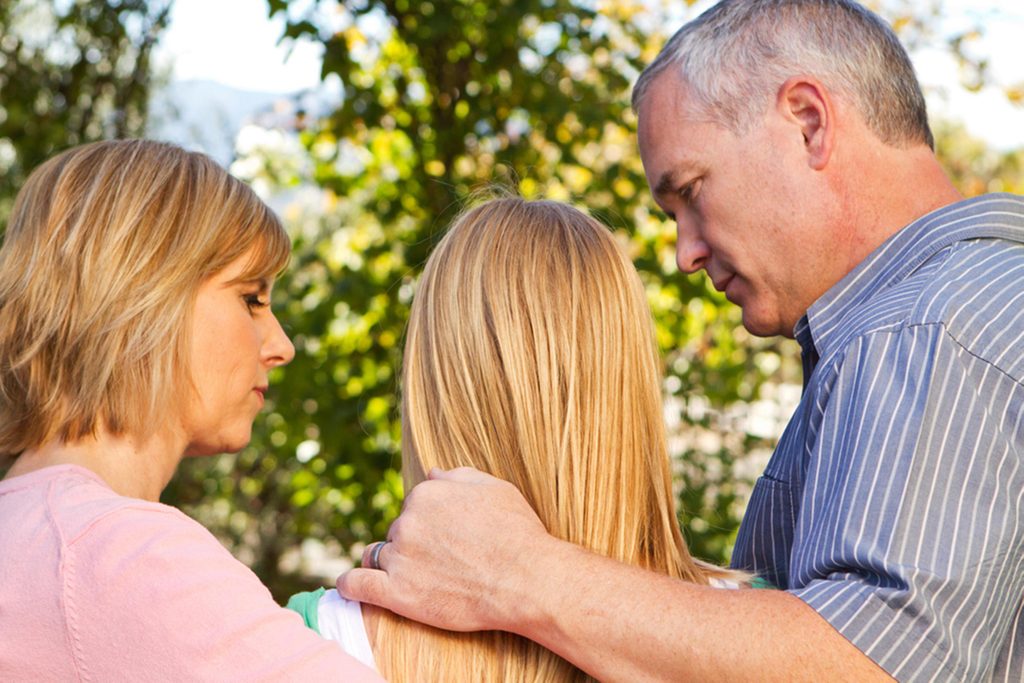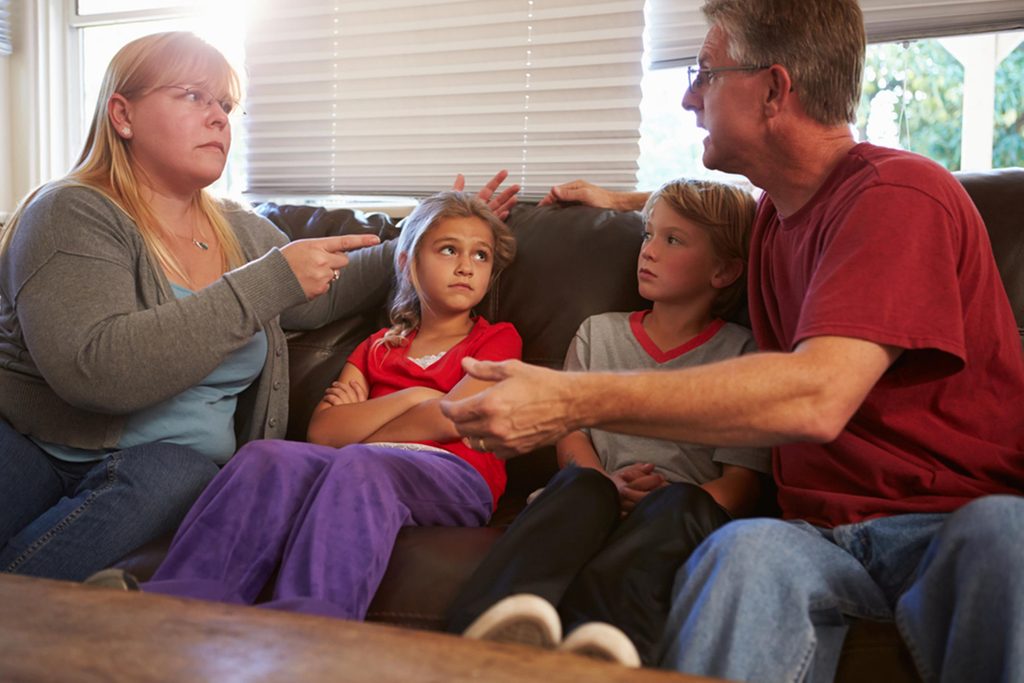EvgenyBakharev/shutterstock
They have parents who walk their talk
“Parents, don’t expect your children to do things differently than you do. If you smoke, it’s hard to ask your children not to. Same goes for drinking alcohol or taking pills. If you overeat or eat lots of processed foods, it’s nearly impossible to get your kids to eat less and eat whole foods. Healthy families know the truth in the old saying, ‘Like father, like son’.” —Barbara Bergin, MD, board-certified orthopedic surgeon in Austin, Texas
MakeStoryStudio/shutterstock
They skip the baby talk—unless they’re actual babies
“Talk to your children, and talk often, about important things: life, science, the amazing world we live in, news, and even politics. As soon as possible, quit baby-talking, especially to girls. We tend to baby-talk to girls longer than we do to boys and so girls end up baby-talking much longer, and even indefinitely. Use your regular voice with your children. Ask them their opinions or ask them to think through problems. Avoid making disciplinary and advice-giving conversations, the only ones you have with your kids.” —Barbara Bergin
They support each other in their health goals
“Healthy families respect individual family member’s approaches to getting and staying healthy, even if it is not what the other family members have to do or choose to do. For example, one person might follow a specific diet or exercise routine. The whole family doesn’t have to do this but the rest of the family should support them in their efforts and not sabotage their diet and exercise goals.” —Lisa Hugh, RD, dietitian based in Maryland. Healthy habits include helping your family members achieve their best without making them feel bad. To encourage healthy habits, learn the smart and sensitive ways to talk to kids about weight.





































































